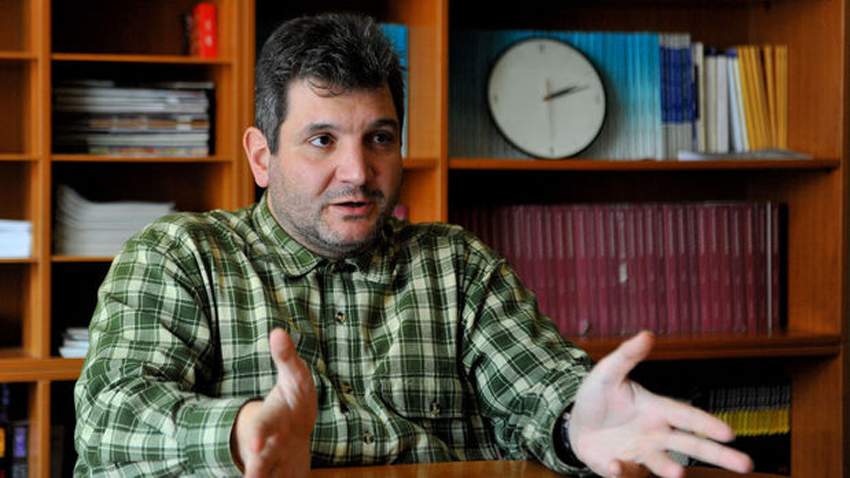Bulgaria would face a social problem, if Greece and its creditors fail to reach an agreement, economy expert Georgi Ganev told Radio Bulgaria. In case of a negative scenario in Bulgaria’s southern neighbor, employment rate in Greece would fall significantly and many Bulgarians living temporarily or permanently in that country would lose their jobs.
If talks in Brussels between the Greek delegation and the creditors end without an agreement Greece will not be able to pay its next installment on its foreign debt. At the end of last week it had to make payments to the International Monetary Fund, but it failed to do so. According to a statement of Greek Minister of Economy Georgios Stathakis, the delay was due to the efforts of Greece to bundle four payments by end June into a single lump sum of EUR 1.6 billion. However, many analysts warn that Greece could face a default, or in other words it will be unable to pay its foreign debts.
The positive dynamics of the Greek economy in 2014 stemming from the economic and budget reforms started to yield fruit. However, the reforms were suspended after the Parliamentary elections won by Syriza. Although Greece argues with its creditors on the Value Added Tax rate, the budget performance and deficit, the main problem regards the failure of the ruling coalition to keep its promises made during the election campaign.
 In Georgi Ganev’s view, if Greece and the EU fail to reach an agreement, this country has two options: to declare default and exit the Eurozone (also known as Grexit), or declare default and stay in the monetary union. If the country enters into the first scenario, it may face a banking crisis, depreciation of the new local currency and a sharp decline of the purchasing power and the savings of the local population. Shipping, which is tightly connected with the ownership of the Greek banks, would be also badly affected.
In Georgi Ganev’s view, if Greece and the EU fail to reach an agreement, this country has two options: to declare default and exit the Eurozone (also known as Grexit), or declare default and stay in the monetary union. If the country enters into the first scenario, it may face a banking crisis, depreciation of the new local currency and a sharp decline of the purchasing power and the savings of the local population. Shipping, which is tightly connected with the ownership of the Greek banks, would be also badly affected.
"If Greece declares a default and keeps the Euro, we would witness a very interesting transitional scenario, because it became clear that the majority of the Greeks prefer the Euro to a local currency. In that case, Greece will not be able to pay salaries and pensions for several months, because this country can not print money."
The political price of a similar situation could be paid by the resignation of the Greek cabinet and early Parliamentary elections. Bulgaria already went through a default during the first cabinet of former Prime Minister Andrey Lukanov (February-September 1990). He won the following Parliamentary elections, but this country remained in total isolation until 1994 when it reached an agreement with its creditors.
In Georgi Ganev’s words, Greek banks operating in Bulgaria would not be affected by any of the possible scenarios in Greece.
"These banks have been subject to a stricter monitoring in the recent years. That is why their financial exposure is very low at present. If their parent companies face liquidity problems, they would most probably sell their subsidiaries. Many Bulgarian banks went through similar restructuring. The EU and Bulgaria realized that Greece may enter a negative scenario and launched serious financial buffers. That is why they are not seriously endangered from a possible default of Bulgaria’s southern neighbor."
In Georgi Ganev’s view, Bulgaria’s export to Greece would not be affected seriously, as the economic conjuncture has been negative over the past four years.
"The problems in Greece started in 2011. Bulgaria’s export, however, has not dwindled significantly. On the contrary, it rose as compared to 2010, yet with a smaller rate as compared to exports to other foreign markets. If Greece exits the Eurozone and introduces a weaker local currency, Bulgaria’s exports in the next 1 to 2 years would decline significantly and the imports will rise, which would boost consumer demand, because the price of the olive oil and olives will fall temporarily.
Greece has to undertake a series of economic reforms. Otherwise, it would continue to become poorer. It is a matter of political decision whether these reforms would be made by the country’s current or next Parliament."
English version: Kostadin Atanasov
Bilateral relations between Bulgaria and Argentina have received a new impetus for development following the visit of an Argentine delegation from the Chaco province to Bulgaria at the beginning of November . High-ranking officials from the..
Employers are contesting the rise of the minimum wage. The Bulgarian Industrial Capital Association announced that they filed a complaint in the Supreme Administrative Court. About 430,000 people in the country work for minimum wage...
If the political crisis continues, the lost benefits will reach a threshold after which the Bulgarian business will begin to lose competitiveness due to growing deficits in education, healthcare, infrastructure, regional development and demographics...

+359 2 9336 661
